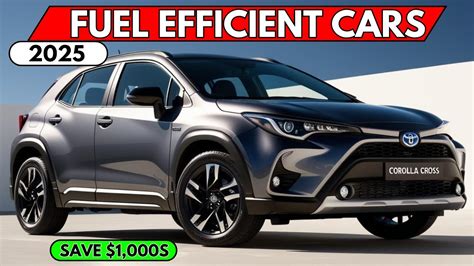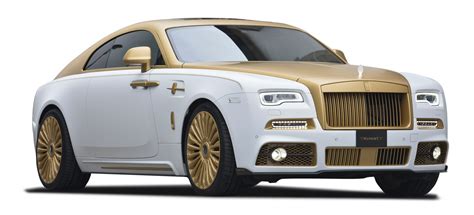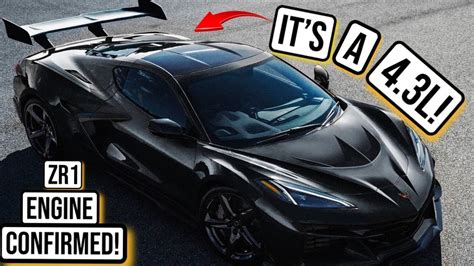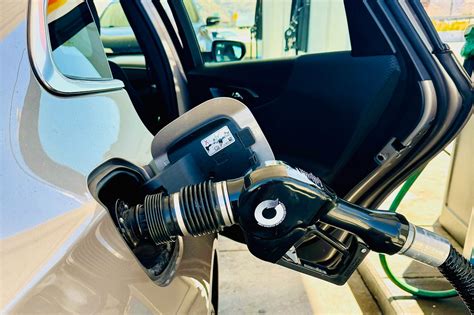
The surging demand for fuel-efficient vehicles, compounded by rising gas prices, has led many consumers to explore hybrid options. Automotive expert Lauren Fix, “The Car Coach,” has released her list of top hybrid vehicle picks for 2024, highlighting models that offer a compelling blend of fuel economy, technology, and overall value. Her selections include the Toyota Prius, Hyundai Elantra Hybrid, Lexus RX 350h, and Ford Maverick Hybrid, each lauded for specific attributes catering to diverse consumer needs and preferences.
Expert’s Hybrid Hotlist: Top Picks for Fuel Efficiency and Value
As gasoline prices continue their volatile climb, hybrid vehicles are gaining traction as a practical and economical alternative for drivers seeking to reduce their carbon footprint and save money at the pump. Automotive expert Lauren Fix, known as “The Car Coach,” has curated a list of the top four hybrid vehicles currently available, emphasizing their fuel efficiency, technological advancements, and overall value proposition. Her selections, featured on Yahoo! Autos, provide a comprehensive guide for consumers navigating the increasingly complex hybrid market.
Fix’s recommendations span a range of vehicle categories, from compact cars to SUVs and pickup trucks, reflecting the diverse needs of today’s drivers. Her top picks include the Toyota Prius, Hyundai Elantra Hybrid, Lexus RX 350h, and Ford Maverick Hybrid. Each model has been carefully evaluated based on factors such as fuel economy, performance, features, and price, ensuring that consumers have access to reliable and informed purchasing advice.
Toyota Prius: The Hybrid Icon Redefined
The Toyota Prius, a perennial favorite in the hybrid segment, continues to impress with its exceptional fuel efficiency and redesigned aesthetics. Fix highlights the Prius’s impressive gas mileage, noting that it “gets great gas mileage,” making it an ideal choice for environmentally conscious drivers and those seeking to minimize their fuel expenses. The Prius’s redesigned exterior and improved interior contribute to its overall appeal, solidifying its position as a leader in the hybrid market.
Beyond its fuel efficiency, the Prius boasts a range of advanced technology features, including a user-friendly infotainment system and a suite of driver-assistance systems designed to enhance safety and convenience. Its comfortable ride quality and spacious interior further enhance its practicality as a daily driver. The Prius Prime plug-in hybrid variant offers even greater fuel efficiency and the ability to drive on electric power for a limited range, making it an attractive option for those with shorter commutes.
The 2024 Prius features a more powerful hybrid system compared to previous generations, resulting in improved acceleration and overall performance. Its sleek and modern design sets it apart from its predecessors, attracting a wider range of buyers who may have previously been deterred by its somewhat unconventional styling. Toyota has also focused on enhancing the Prius’s handling and driving dynamics, making it a more engaging and enjoyable vehicle to drive.
Hyundai Elantra Hybrid: A Stylish and Efficient Compact
The Hyundai Elantra Hybrid stands out for its stylish design, impressive fuel economy, and comprehensive list of standard features. Fix praises the Elantra Hybrid for being “nicely priced,” making it an accessible option for budget-conscious buyers seeking a hybrid vehicle without compromising on features or style. Its bold exterior design and well-appointed interior contribute to its overall appeal, while its advanced technology features enhance its practicality and convenience.
The Elantra Hybrid’s fuel efficiency is a major selling point, allowing drivers to save money on gas while reducing their environmental impact. Its smooth and refined driving experience further enhances its appeal as a daily driver. The Elantra Hybrid also comes standard with a range of driver-assistance features, including automatic emergency braking, lane-keeping assist, and adaptive cruise control, providing added safety and peace of mind.
Hyundai has made significant strides in recent years in terms of design, quality, and technology, and the Elantra Hybrid is a prime example of this progress. Its competitive pricing and generous warranty coverage further enhance its value proposition, making it an attractive option for buyers seeking a well-rounded and affordable hybrid vehicle. The Elantra Hybrid’s spacious interior and comfortable seats make it suitable for both short commutes and longer road trips.
Lexus RX 350h: Luxury and Efficiency Combined
For those seeking a luxurious and fuel-efficient SUV, the Lexus RX 350h is an excellent choice. Fix highlights the RX 350h’s “great mpg,” emphasizing its ability to deliver impressive fuel economy without sacrificing the comfort, luxury, and performance that Lexus is known for. The RX 350h’s hybrid powertrain provides a smooth and refined driving experience, while its spacious interior and advanced technology features cater to the needs of discerning drivers.
The RX 350h’s hybrid system combines a gasoline engine with an electric motor to deliver a balance of power and efficiency. Its regenerative braking system helps to capture energy during deceleration, further enhancing its fuel economy. The RX 350h’s luxurious interior is appointed with high-quality materials and features a range of advanced technology, including a large infotainment display, a premium sound system, and a suite of driver-assistance systems.
Lexus has a long-standing reputation for reliability and customer satisfaction, and the RX 350h upholds this tradition. Its comfortable ride quality and quiet cabin make it an ideal choice for long-distance driving. The RX 350h’s spacious cargo area provides ample room for luggage and other belongings, making it a practical choice for families and those who frequently transport cargo.
Ford Maverick Hybrid: A Compact Truck with Big Fuel Savings
The Ford Maverick Hybrid is a unique offering in the hybrid market, combining the practicality of a pickup truck with the fuel efficiency of a hybrid powertrain. Fix emphasizes the Maverick Hybrid’s affordability, noting that it is “less expensive than other trucks.” Its compact size makes it easy to maneuver in urban environments, while its truck bed provides ample cargo-carrying capacity for work or recreation. The Maverick Hybrid’s impressive fuel economy makes it an attractive option for those who need a truck but want to minimize their fuel expenses.
The Maverick Hybrid’s standard hybrid powertrain delivers a smooth and responsive driving experience. Its compact size and nimble handling make it easy to drive and park. The Maverick Hybrid’s interior is functional and well-designed, with comfortable seating and a user-friendly infotainment system. Its standard safety features include automatic emergency braking and lane-keeping assist.
The Ford Maverick Hybrid has disrupted the pickup truck market with its combination of affordability, fuel efficiency, and practicality. Its popularity has exceeded expectations, with demand far outpacing supply. The Maverick Hybrid’s innovative design and clever features have made it a favorite among both first-time truck buyers and those looking to downsize from larger, less fuel-efficient trucks.
The Future of Hybrids
As technology continues to evolve, hybrid vehicles are expected to play an increasingly important role in the automotive landscape. Automakers are investing heavily in hybrid technology, developing more advanced powertrains that offer even greater fuel efficiency and performance. The increasing availability of plug-in hybrid models, which offer the ability to drive on electric power for a limited range, is further expanding the appeal of hybrid vehicles.
The future of hybrids is also closely linked to the development of electric vehicle infrastructure. As charging stations become more widely available, plug-in hybrid vehicles will become even more practical for daily use. The combination of electric power and gasoline engine provides a flexible and convenient solution for drivers who want to reduce their carbon footprint without sacrificing the range and convenience of a traditional gasoline vehicle.
The growing popularity of hybrid vehicles is a clear indication that consumers are increasingly concerned about fuel efficiency and environmental impact. As gas prices continue to fluctuate and environmental regulations become more stringent, hybrid vehicles are poised to become an even more attractive option for a wider range of drivers. The models highlighted by Lauren Fix represent some of the best hybrid vehicles currently available, offering a compelling blend of fuel economy, technology, and value.
FAQ: Hybrid Vehicles
-
What are the main benefits of owning a hybrid vehicle?
Hybrid vehicles offer several key benefits, including improved fuel economy, reduced emissions, and potential tax incentives. According to Lauren Fix, hybrid vehicles are a practical and economical alternative for drivers seeking to reduce their carbon footprint and save money on gas. They combine a gasoline engine with an electric motor to deliver a balance of power and efficiency. Hybrids also utilize regenerative braking, which captures energy during deceleration and recharges the battery, further enhancing fuel economy. In some regions, hybrid vehicle owners may be eligible for tax credits or rebates, making them an even more attractive option. Furthermore, hybrid vehicles often have lower maintenance costs compared to traditional gasoline vehicles due to the reduced wear and tear on the engine and braking system.
-
How does a hybrid vehicle differ from a plug-in hybrid vehicle?
The primary difference between a hybrid vehicle and a plug-in hybrid vehicle (PHEV) lies in their battery size and charging capabilities. A traditional hybrid vehicle has a smaller battery that is charged primarily through regenerative braking and the gasoline engine. It cannot be plugged in to an external power source for charging. A plug-in hybrid vehicle, on the other hand, has a larger battery that can be charged by plugging it into an electrical outlet or charging station. This allows PHEVs to travel a certain distance on electric power alone before the gasoline engine kicks in. According to Lauren Fix, PHEVs offer even greater fuel efficiency and the ability to drive on electric power for a limited range, making them an attractive option for those with shorter commutes. PHEVs typically have a higher initial cost than traditional hybrids, but the potential for fuel savings and government incentives can offset this cost over time.
-
What is regenerative braking and how does it work?
Regenerative braking is a technology used in hybrid and electric vehicles to capture energy that would otherwise be lost during braking. Instead of relying solely on friction brakes to slow the vehicle, regenerative braking uses the electric motor to generate electricity while decelerating. This electricity is then stored in the vehicle’s battery, effectively recovering energy and improving fuel efficiency. When the driver applies the brakes, the electric motor acts as a generator, converting the kinetic energy of the vehicle into electrical energy. This process slows the vehicle down while simultaneously charging the battery. Once the battery is fully charged or the braking force exceeds the capacity of the regenerative braking system, the traditional friction brakes engage to provide additional stopping power. Regenerative braking not only improves fuel economy but also reduces wear and tear on the friction brakes, extending their lifespan.
-
Are hybrid vehicles more expensive to maintain than traditional gasoline vehicles?
In general, hybrid vehicles are not more expensive to maintain than traditional gasoline vehicles. In some cases, they may even be less expensive. While hybrid vehicles have more complex powertrains, they also benefit from certain features that can reduce maintenance costs. For example, regenerative braking reduces wear and tear on the friction brakes, extending their lifespan. Hybrid vehicles also tend to have lower engine wear due to the electric motor assisting with acceleration and cruising. However, hybrid vehicles do have some unique maintenance requirements, such as battery replacement. The cost of replacing a hybrid battery can be significant, but batteries typically last for many years and are often covered by warranties. According to various sources, the long-term maintenance costs of hybrid vehicles are often comparable to or lower than those of traditional gasoline vehicles, especially when considering the potential fuel savings.
-
What factors should I consider when choosing a hybrid vehicle?
When choosing a hybrid vehicle, several factors should be considered to ensure that the vehicle meets your specific needs and preferences. First and foremost, consider your driving habits and needs. If you primarily drive short distances in urban environments, a plug-in hybrid vehicle may be a good choice, as it allows you to drive on electric power for a significant portion of your commute. If you frequently take long road trips, a traditional hybrid vehicle with good fuel economy may be more suitable. Other factors to consider include budget, vehicle size, features, and reliability. Lauren Fix recommends considering the Toyota Prius, Hyundai Elantra Hybrid, Lexus RX 350h, and Ford Maverick Hybrid, as they offer a compelling blend of fuel efficiency, technology, and value. It is also important to research the vehicle’s reliability ratings and warranty coverage before making a purchase. Finally, test driving several different hybrid models can help you determine which vehicle best suits your needs and preferences.
Expanded Analysis and Background
The rising popularity of hybrid vehicles is driven by a confluence of factors, including increasing awareness of environmental issues, fluctuating gasoline prices, and technological advancements that have made hybrids more efficient and affordable. Consumers are increasingly seeking vehicles that offer a balance of fuel economy, performance, and practicality, and hybrid vehicles are well-positioned to meet these demands.
The automotive industry is undergoing a significant transformation, with automakers investing heavily in electrification and developing a wide range of hybrid and electric vehicles. This shift is driven by both consumer demand and government regulations aimed at reducing emissions and improving fuel economy. The increasing availability of hybrid vehicles in various segments, from compact cars to SUVs and pickup trucks, provides consumers with a wider range of choices than ever before.
The Toyota Prius, a pioneer in the hybrid market, has played a significant role in popularizing hybrid technology and demonstrating its viability as a mainstream transportation option. The Prius’s success has paved the way for other automakers to enter the hybrid market and develop their own hybrid models. The Hyundai Elantra Hybrid, Lexus RX 350h, and Ford Maverick Hybrid represent some of the newer entrants in the hybrid market, offering innovative features and competitive pricing.
The Hyundai Elantra Hybrid showcases Hyundai’s commitment to offering fuel-efficient and stylish vehicles at an affordable price. The Elantra Hybrid’s bold design and comprehensive list of standard features make it an attractive option for budget-conscious buyers seeking a hybrid vehicle without compromising on style or technology.
The Lexus RX 350h caters to the luxury segment, providing a refined and fuel-efficient SUV that offers a balance of comfort, performance, and advanced technology. The RX 350h’s hybrid powertrain delivers a smooth and quiet driving experience, while its luxurious interior and spacious cargo area make it a practical choice for families and those who frequently transport cargo.
The Ford Maverick Hybrid has disrupted the pickup truck market with its combination of affordability, fuel efficiency, and practicality. Its compact size makes it easy to maneuver in urban environments, while its truck bed provides ample cargo-carrying capacity for work or recreation. The Maverick Hybrid’s popularity has exceeded expectations, demonstrating the growing demand for fuel-efficient pickup trucks.
The future of hybrid vehicles is closely linked to the development of battery technology. Advances in battery technology are leading to increased energy density, lower costs, and improved performance. This will enable hybrid vehicles to achieve even greater fuel efficiency and electric driving range. The development of solid-state batteries, which offer improved safety and energy density compared to traditional lithium-ion batteries, is expected to further enhance the performance and appeal of hybrid vehicles.
In addition to battery technology, advancements in electric motor technology are also contributing to the improvement of hybrid vehicles. More efficient and powerful electric motors are enabling hybrid vehicles to deliver improved acceleration and overall performance. The integration of electric motors into the vehicle’s drivetrain is also becoming more seamless, resulting in a smoother and more refined driving experience.
The infrastructure for charging electric vehicles is also expanding rapidly, making plug-in hybrid vehicles more practical for daily use. The increasing availability of public charging stations, along with the option to charge at home, is making it easier for plug-in hybrid owners to take advantage of the electric driving range offered by these vehicles.
Government incentives and regulations are also playing a significant role in the adoption of hybrid vehicles. Tax credits, rebates, and other incentives can help to offset the higher initial cost of hybrid vehicles, making them more accessible to a wider range of buyers. Fuel economy standards and emissions regulations are also driving automakers to develop and sell more hybrid and electric vehicles.
The rise of hybrid vehicles is not only beneficial for consumers and the environment but also for the automotive industry as a whole. The development and production of hybrid vehicles are creating new jobs and stimulating innovation in the automotive sector. The transition to hybrid and electric vehicles is also helping to reduce our dependence on fossil fuels and improve energy security.
As the automotive industry continues to evolve, hybrid vehicles are expected to remain a significant part of the transportation landscape for many years to come. The ongoing advancements in hybrid technology, combined with increasing consumer demand and government support, will ensure that hybrid vehicles continue to offer a compelling blend of fuel efficiency, performance, and value. The models highlighted by Lauren Fix represent some of the best hybrid vehicles currently available, providing consumers with a reliable and informed guide to navigating the hybrid market. The choices cater to a multitude of needs, from affordability and space to fuel efficiency and luxury.
The integration of advanced driver-assistance systems (ADAS) in hybrid vehicles is also enhancing their safety and convenience. Features such as automatic emergency braking, lane-keeping assist, adaptive cruise control, and blind-spot monitoring are becoming increasingly common in hybrid vehicles, providing drivers with added peace of mind and reducing the risk of accidents.
The development of connected car technologies is also transforming the driving experience in hybrid vehicles. Connected car features such as real-time traffic updates, navigation, and remote vehicle control are making it easier and more convenient to own and operate a hybrid vehicle. These technologies also enable automakers to collect data on vehicle performance and driving habits, which can be used to improve the efficiency and reliability of hybrid vehicles.
The increasing availability of over-the-air (OTA) software updates is also enhancing the functionality and performance of hybrid vehicles. OTA updates allow automakers to remotely update the vehicle’s software, adding new features, improving performance, and fixing bugs. This eliminates the need for owners to visit a dealership for software updates, saving time and money.
The rise of ride-sharing and car-sharing services is also contributing to the demand for hybrid vehicles. Hybrid vehicles are well-suited for ride-sharing and car-sharing applications due to their fuel efficiency and reliability. These services are making it easier for people to access transportation without having to own a vehicle, which can help to reduce traffic congestion and emissions.
The global pandemic has also had an impact on the demand for hybrid vehicles. As people become more concerned about their health and safety, they are increasingly seeking personal transportation options that allow them to avoid public transportation. Hybrid vehicles offer a safe and convenient alternative to public transportation, while also providing fuel efficiency and reduced emissions.
The increasing awareness of climate change is also driving the demand for hybrid vehicles. As people become more aware of the environmental impact of their transportation choices, they are increasingly seeking vehicles that offer lower emissions and improved fuel efficiency. Hybrid vehicles are a key part of the solution to climate change, helping to reduce greenhouse gas emissions and improve air quality.
The combination of all these factors is creating a perfect storm for hybrid vehicles. As technology continues to evolve, consumer demand continues to grow, and government support continues to increase, hybrid vehicles are poised to play an increasingly important role in the future of transportation. The models highlighted by Lauren Fix represent some of the best hybrid vehicles currently available, offering consumers a compelling blend of fuel economy, technology, and value. Choosing the right model will largely depend on the buyer’s specific situation and needs.









